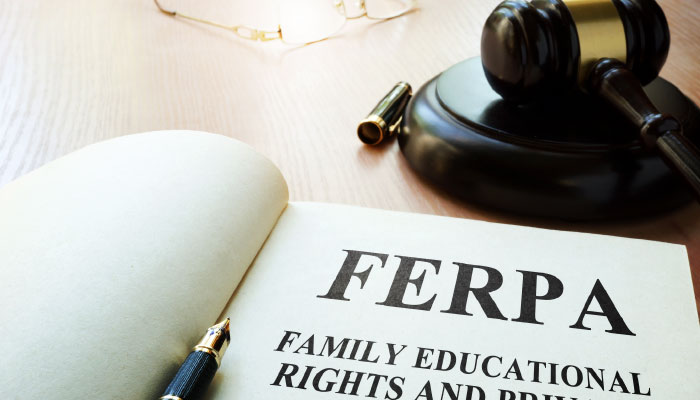For those involved in special education programs in federally-funded K-12 schools, there are a surprising number of regulations to consider when planning for students’ success. Often the process is straightforward: After a student is referred to special education, the school conducts an assessment and uses those results to plan each student’s individualized education program (IEP). But sometimes parents disagree with the school’s assessment and request an IEP under the Individuals with Disabilities Education Act (IDEA).
IDEA entitles parents to one IEP per school assessment they disagree with, and an IEP requires the involvement of a qualified independent evaluator not employed by the school. Keeping in mind that the Family Educational Rights and Privacy Act of 1974 (FERPA) protects the educational records of students, how can school officials be sure that they are complying with FERPA while working with parents to ensure the completion of a successful IEP?
Overview of the IEP Process
First, it’s important that both school officials and parents understand what an IEP is. An IEP is not just a private evaluation or assessment; rather it is specific in that it happens after an initial assessment done by the school that the parents don’t agree with. Parents can disagree because of any of the following:
- They believe the evaluation was not comprehensive enough
- The results said their child doesn’t have a disability and the parents think their child does have one, or vice versa
- They believe their child has a different disability than what the school’s assessment showed
During an IEP, the school’s responsibilities include providing parents with a list of qualified evaluators, and parents then select an evaluator from the list. For an evaluator to be “qualified,” schools must use the same criteria they would use for their own evaluations. At no point can a school use criteria or impose any restrictions that would make it impossible for parents to go through with an IEP.
Another unique criterion of IEPs is that they are created at public expense, meaning that the parents will not be responsible for any of the costs. If parents have already funded an IEP themselves, which they initiated without notifying the school, then the school has the option to either refund the parents or initiate due process, where the hearing officer would have the final say on the validity or necessity of an IEP and who should fund it.
Once the evaluation is complete, schools must consider its results, but that doesn’t mean they have to use them in the creation or modification of a student’s IEP. At the same time, since a student’s IEP is crucial to his or her success, it’s important that schools fairly evaluate all information provided to look out for the student’s best interest.
FERPA Complicates the Process
Since by its very nature an independent educational evaluation involves someone from outside the school, how can a school make sure it’s not violating FERPA, which protects the privacy of student information?
After all, in order to conduct a thorough evaluation, the independent evaluator will likely need to see the student’s educational record, as well as observe the student in his or her current program and speak with the student’s educators. Without this, the evaluator could walk away with a very incomplete picture of what the student currently has or may need. This would be a great disservice to the student in question, as it could lead to the development of an inadequate IEP. The key is that FERPA doesn’t protect the privacy of all information—just that of educational records.
So, before releasing educational records to the evaluator, the school must first obtain written consent from the parents, and keep a record of who has had access to these records. In regards to the evaluator observing the child in his or her program, the school must allow this if it allows it for their own evaluators. Allowing this observation of the program (where other students would be present) isn’t breaking FERPA, as the school is not releasing any personally identifiable information (PII) to the evaluator.
As long as schools maintain special education records during an IEP in the same way they maintain all other education records under FERPA, they can work with parents toward the success of their students in special education programs and be in compliance with the key federal laws concerning this process.
Working Together for Student Success
With IEPs, schools can solve their key compliance concern by obtaining written consent from the parents before releasing educational records to the independent evaluator, and by regular training on FERPA compliance. The U.S. Department of Education maintains a FERPA FAQ page which includes questions specifically for K-12 school officials. Additionally, Eli Education and AudioSolutionz offer live webinars, replays, transcripts and DVDs of FERPA-related programs.



